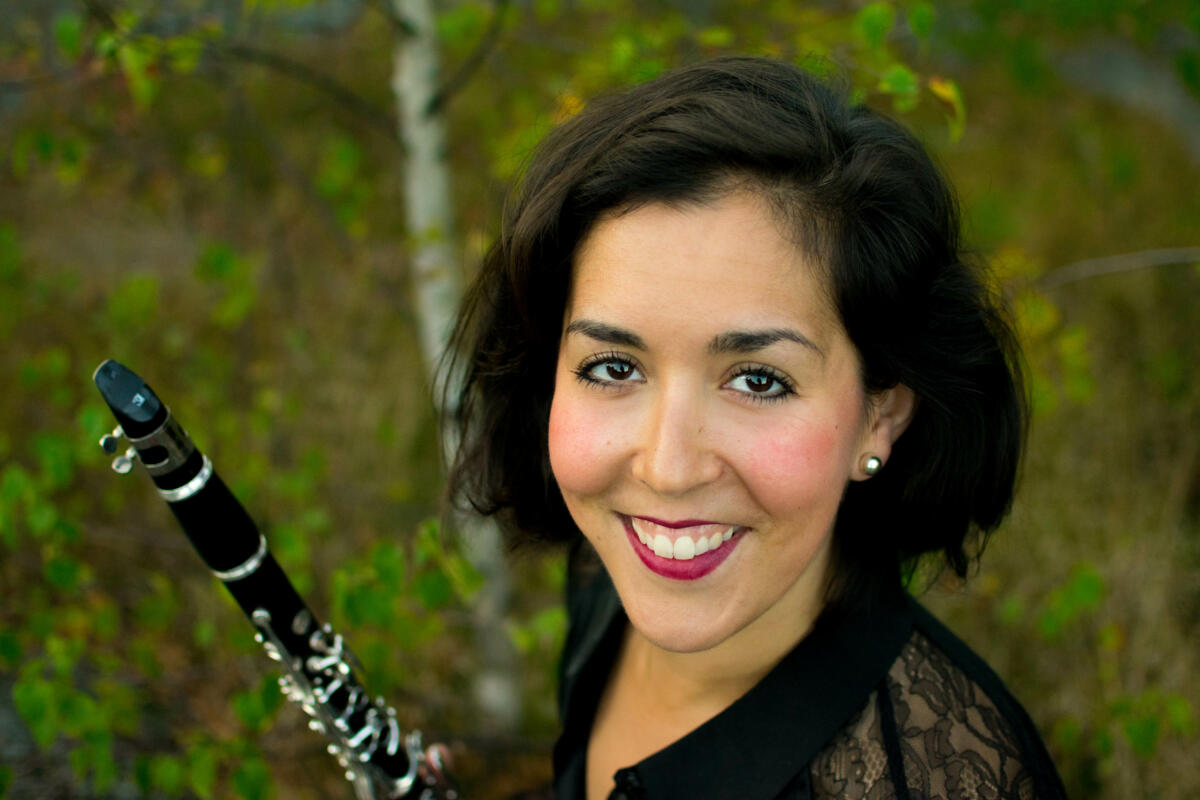Examining contemporary clarinet repertoire
Lucy Abrams-Husso’s artistic doctoral degree to be examined at the Sibelius Academy, Uniarts Helsinki

Clarinettist and researcher Lucy Abrams-Husso’s doctoral project is an innovative combination of artistic practice and ethnographic study. It examines contemporary clarinet repertoire composed by Finnish and American composers since 1980, shedding light on the performance practices and cultural contexts that shape the music.
An artistic and ethnographic exploration
The research draws on Abrams-Husso’s professional experience as a clarinettist, as well as her ethnographic observations of Finnish and American classical music cultures. Since relocating to Finland in 2013, Abrams-Husso has observed the central role that contemporary music plays in the Finnish classical tradition – a significant contrast to its status in the United States. This observation sparked a wider inquiry into the differences in performance practice between the two cultures.
The project’s output includes four artistic components: three live concerts and a CD recording. These performances, serving as case studies, showcase a diverse range of contemporary works, from solo clarinet pieces to collaborations with electronics. Several world premieres of commissioned pieces by both Finnish and American composers were also featured. Notably, the CD Duel highlights the experimental potential of the clarinet in contemporary settings, blending acoustic and electronic elements in new and exciting ways.
Her dissertation, titled The Musical Anthropologist: A Study of Performance Practices in Finnish and American Contemporary Repertoire for Clarinet, merges Abrams-Husso’s expertise in music performance with her academic background in anthropology. It aims to deepen understanding of the artistic decision-making involved in performing contemporary music and to explore how cultural values inform these decisions.
Performance as cultural practice
Rather than focusing solely on technical skills such as extended techniques, Abrams-Husso’s study delves into the sociocultural aspects of performance. Key themes include notation culture, shared ownership, and the performer’s agency in contemporary music. She found differences in the ways Finnish and American performers engage with composers and notated scores. In Finland, the relationship between performer and composer is often highly collaborative, emphasising shared creative ownership, while in the US, performers may approach contemporary works with more defined roles.
“Performing contemporary music requires clarinettists to adopt not just new physical and aural techniques, but also new conceptual frameworks,” Abrams-Husso explains. “It’s about understanding the cultural and aesthetic contexts in which the music exists. By blending artistic research with ethnography, I’ve sought to uncover the reasons behind the distinct performance practices in Finnish and American contemporary music.”
Advocating for contemporary music in clarinet pedagogy
A key goal of Abrams-Husso’s research is to advocate for the greater inclusion of contemporary music in clarinet pedagogy, particularly in the United States. She argues that contemporary repertoire encourages clarinettists to develop creative problem-solving abilities and provides a broader understanding of music’s evolving societal role. Abrams-Husso hopes her research will inspire future generations of clarinettists to embrace contemporary music as a core element of their artistic development.
Lucy Abrams-Husso’s doctoral degree will be examined at the Sibelius Academy on October 18th 2024.